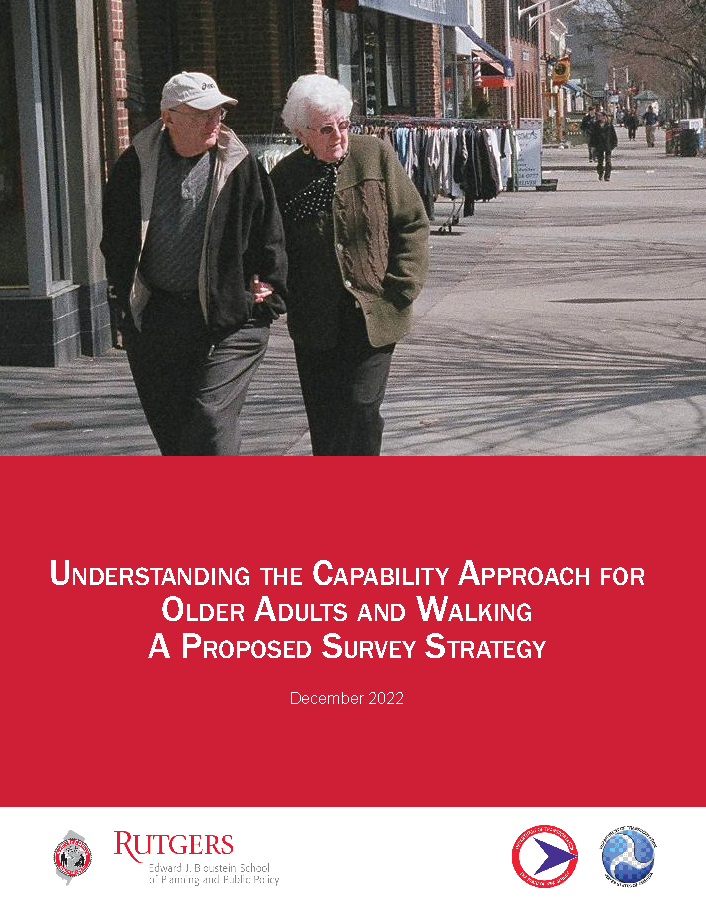This literature review concerns the capability approach, which is a framework of justice that focuses primarily on achieving equity through a just distribution of opportunities such that individuals can take advantage of the opportunities they individually value. This approach to justice confronts what its proponents identify as defects of other frameworks of justice, including egalitarianism and libertarianism. This report focuses on the theoretical underpinnings of the theory with the intent that they may be applied to transportation issues. More specifically, this review examines the capability approach through the lens of its applicability in exploring accessibility issues for older adults and their use of walking for transportation, exercise, and recreation.
Walking for older adults is a societal good, and transportation officials, engineers, researchers, and planners should be interested in removing barriers that reduce its positive impacts. Older adults who walk can maintain their health for longer, reducing health care costs. Additionally, a mode shift from driving to walking for short trips can reduce vehicle miles traveled, lowering fuel costs, vehicle maintenance costs, and congestion. Nevertheless, older adults experience barriers that inhibit them from walking more often. For some adults, the physical act of walking becomes too difficult as their health gradually deteriorates, but for others, the reasons they choose not to walk are entirely different.
New Jersey Bicycle and Pedestrian Resource Center. (2022). Understanding the Capability Approach for Older Adults and Walking: A Proposed Survey Strategy. Retrieved from https://njbikeped.org/understanding-the-capability-approach-for-older-adults-and-walking

